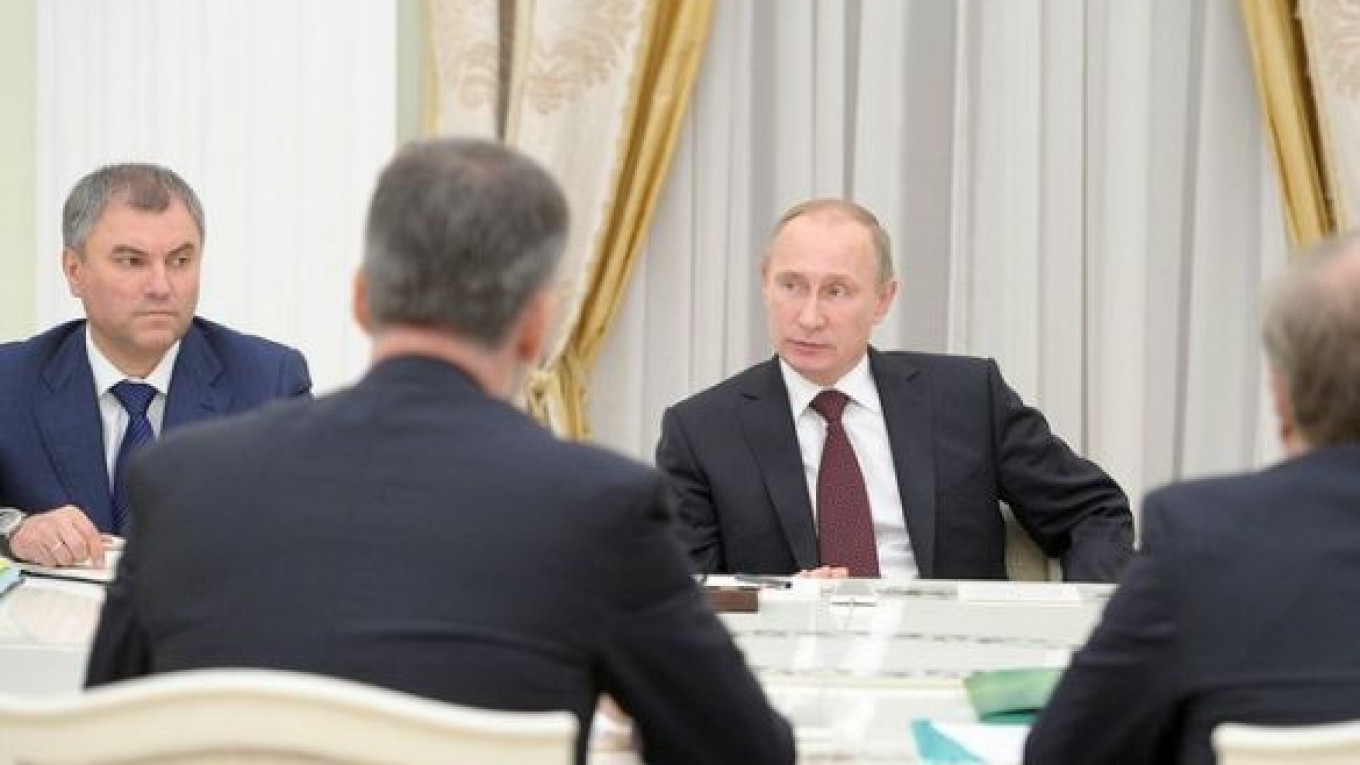At a meeting with non-parliamentary parties on Wednesday, President Vladimir Putin told political opposition leaders he would "look at" the charges against 70 people whom rights groups consider political prisoner and said his laws weren't intended to target Russia's gays.
The meeting gathered the leaders of the major non-parliamentary political parties, including Vladimir Ryzhkov of RPR-Parnas, billionaire Mikhail Prokhorov of Civil Platform and Sergei Mitrokhin of Yabloko.
Opposition activist Alexei Navalny was not invited to the meeting because his People's Alliance is not a registered party.
Seeking to defuse international accusations that a recent law banning gay "propaganda" has spurred a series of attacks against Russia's LGBT community, Putin said that "all that we did at the governmental, the legislative level had to do with limiting propaganda among minors," Interfax reported.
"Not on a single score should we create this kind of xenophobia in society against anyone, including against people of nontraditional sexual orientation," he said.
Ryzhkov handed Putin a list of 70 convicts and detainees in Russia's prisons and jails, whom human rights groups have designated as political prisoners.
The list presented during the meeting wasn't immediately available, but Russian media reported that it could match the list of 70 "political prisoners" prepared by human rights group Memorial, which included members of the punk rock band Pussy Riot, Greenpeace activists arrested during a protest in the Arctic, and participants of last year's opposition rallies.
"I will certainly take a look at this, and in the most attentive way," Putin told Ryzhkov.
It would not be the first time Putin reviews such a list, having previously concluded that many supposed political prisoners are being victimized unjustly.
"I meet with human rights activists. Some of them say that people are in jail for their political convictions," Putin told participants of the state-run youth camp at Lake Seliger in July 2012.
"As soon as you start to look into this, it turns out that the motives for their arrest and detention are not their political or human rights activities, but completely different events."
A Message from The Moscow Times:
Dear readers,
We are facing unprecedented challenges. Russia's Prosecutor General's Office has designated The Moscow Times as an "undesirable" organization, criminalizing our work and putting our staff at risk of prosecution. This follows our earlier unjust labeling as a "foreign agent."
These actions are direct attempts to silence independent journalism in Russia. The authorities claim our work "discredits the decisions of the Russian leadership." We see things differently: we strive to provide accurate, unbiased reporting on Russia.
We, the journalists of The Moscow Times, refuse to be silenced. But to continue our work, we need your help.
Your support, no matter how small, makes a world of difference. If you can, please support us monthly starting from just $2. It's quick to set up, and every contribution makes a significant impact.
By supporting The Moscow Times, you're defending open, independent journalism in the face of repression. Thank you for standing with us.
Remind me later.






